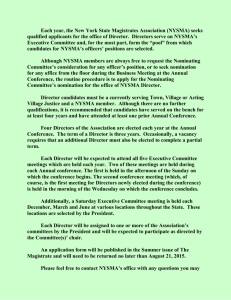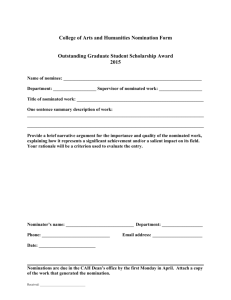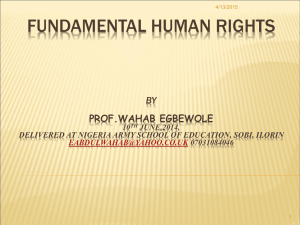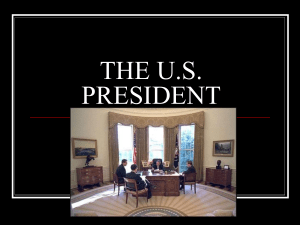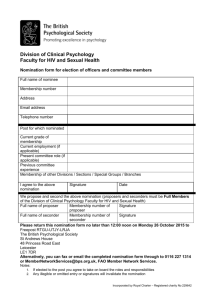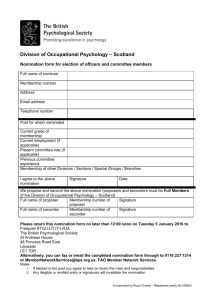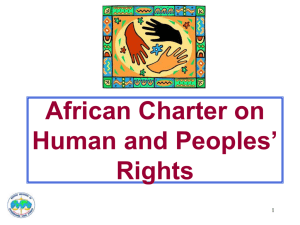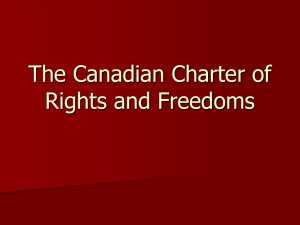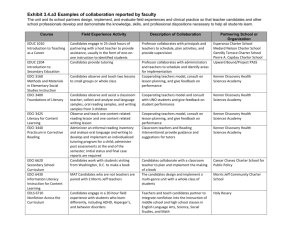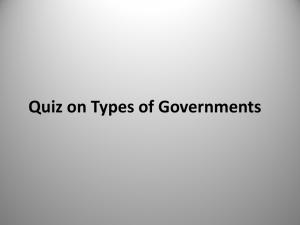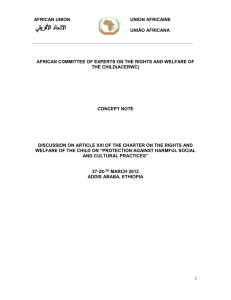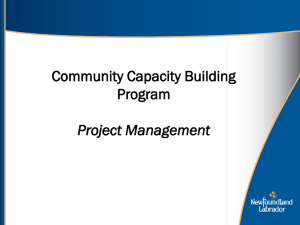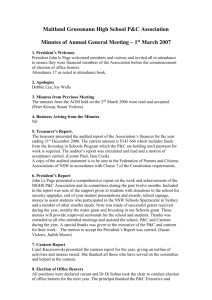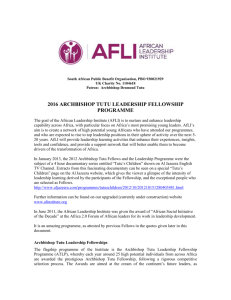Nomination and selection of the Members of the African Committee
advertisement
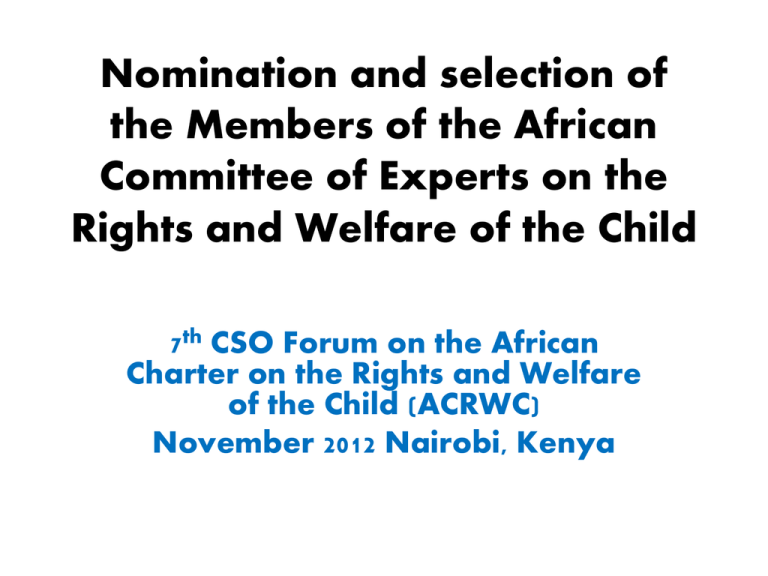
Nomination and selection of the Members of the African Committee of Experts on the Rights and Welfare of the Child 7th CSO Forum on the African Charter on the Rights and Welfare of the Child (ACRWC) November 2012 Nairobi, Kenya Who is eligible to be a Committee member? The Committee has eleven members who are elected by the AU Assembly, on the advice of the Executive Council, to serve a five year team and who cannot be re-elected on completion of their term. The African Charter (Art.33) states that they must be ‘of high moral standing, integrity, impartiality and competence in matters of the rights and welfare of the child.’ They serve on a voluntary basis and in an independent capacity, not as representatives of their government. They are supported in their work by a small Secretariat based in Addis Ababa, Ethiopia. They come from many different backgrounds including civil society, academia or state institutions. (Cf. Folder for biographies of the current Members). However, according to the Rule 11 (Rules of Procedure of the ACERWC) and in order to maintain their independence, members shall not be part of an inter-governmental organization, UN agency or hold any politically binding position such as Cabinet Minister, Deputy Minister, Member of Parliament or Ambassador. How are Committee members nominated and elected? (1) Nomination by states (Art.35 of the African Children’s Charter) Each State Party can nominate a maximum of two candidates. However, no two members of the Committee can be from the same state which means that when two candidates are nominated by a State, one of them shall not be a national of that State. Foreign ministers and the representatives of permanent missions to the AU are asked to submit the names and CVs of their nominated candidates to the AU Commission’s Office of the Legal Counsel at least two months before the election is to be held. The process of candidate election will vary from state to state and the best way to find out who your country is planning to nominate (if anyone) is to contact your foreign ministry or permanent mission to the AU in Addis Ababa, Ethiopia. How are Committee members nominated and elected? (2) – States Parties have to ask nominees to complete biographical information indicating their judicial, practical, academic, activist, professional and other relevant experience in the field of children ’s rights. This biographical information should also include information on political and other associations relevant to determining questions of both eligibility and incompatibility. In addition, nominees have to submit statements indicating how they fulfill the criteria for eligibility contained in the Charter. Who elects the members? – Members are elected by the Executive Council (comprised of the foreign ministers of AU member states) by secret ballot in a meeting held just prior to the AU Summit. – Their decision is then passed to the AU Assembly for final approval and adoption (Article 34 of the Charter). When are the next elections? – The most recent elections of New Committee member was at the AU Summit held in January 2011 when Ms. Dawlat Hassan (EGYPT) ended her term of office. Prof Julie Sloth Nelsen of South Africa was elected – The next elections will be held in July 2013 when four of the current members will complete their term (the Committee’s year runs from July to July). – By July 2013 Summit the 4 Committee members from Benin, Burkina Faso, Madagascar and Nigeria will end their terms of Office. – A list of the current members of the Committee, dates of completion of their term of office and their short biographies can be found on the ACERWC and CSO Forum ACRWC website. How can WE influence the selection and nomination process? • Brainstorming Issues: • Identifying qualified candidates to serve on the Committee at the country level • Recommend qualified candidates to your Govt. • Ensuring that they are the State’s nominee • Popularize the Selection and Election Process of ACERWC members at your national level Thank you for your attention! Merci de votre attention! Questions & Comments
